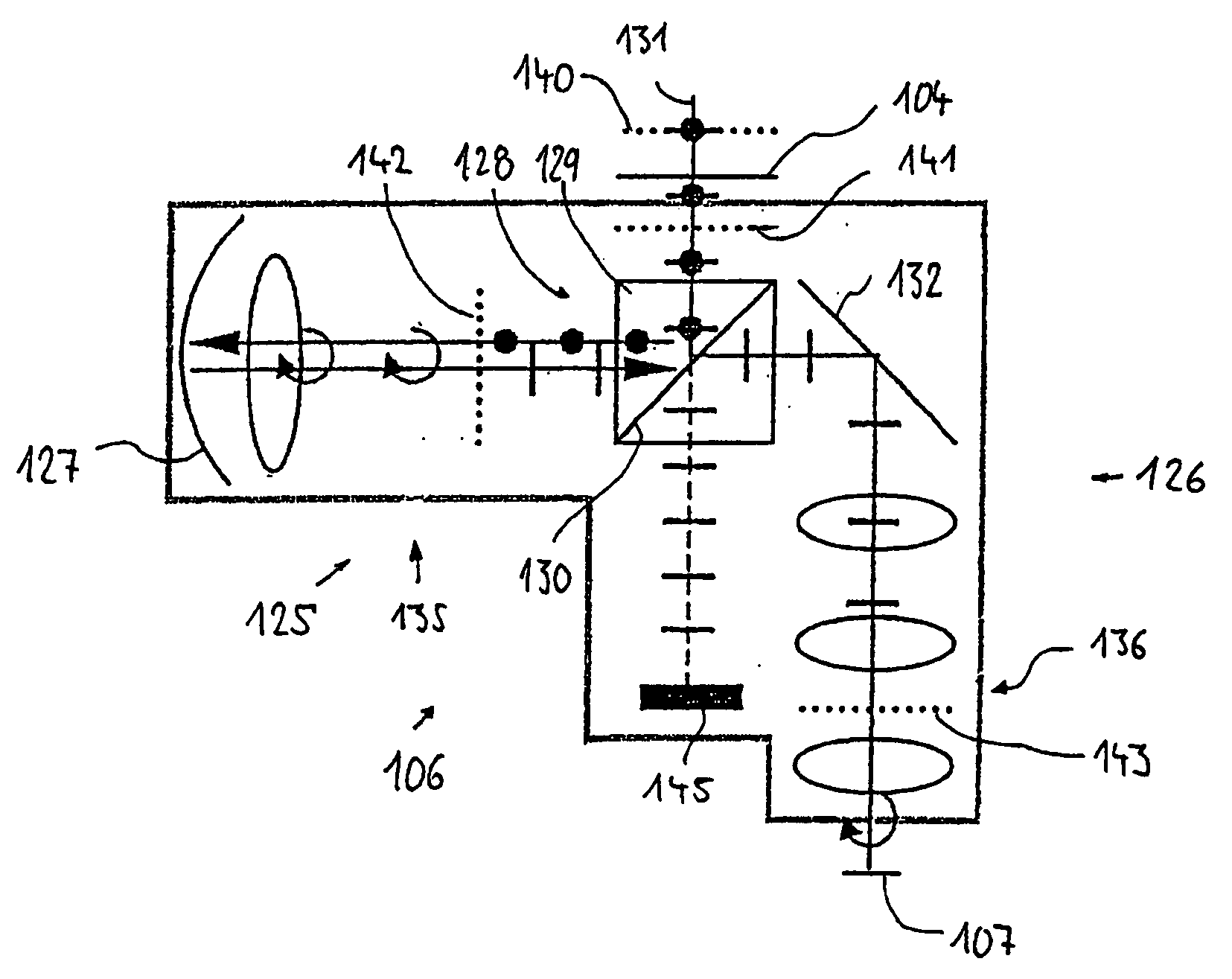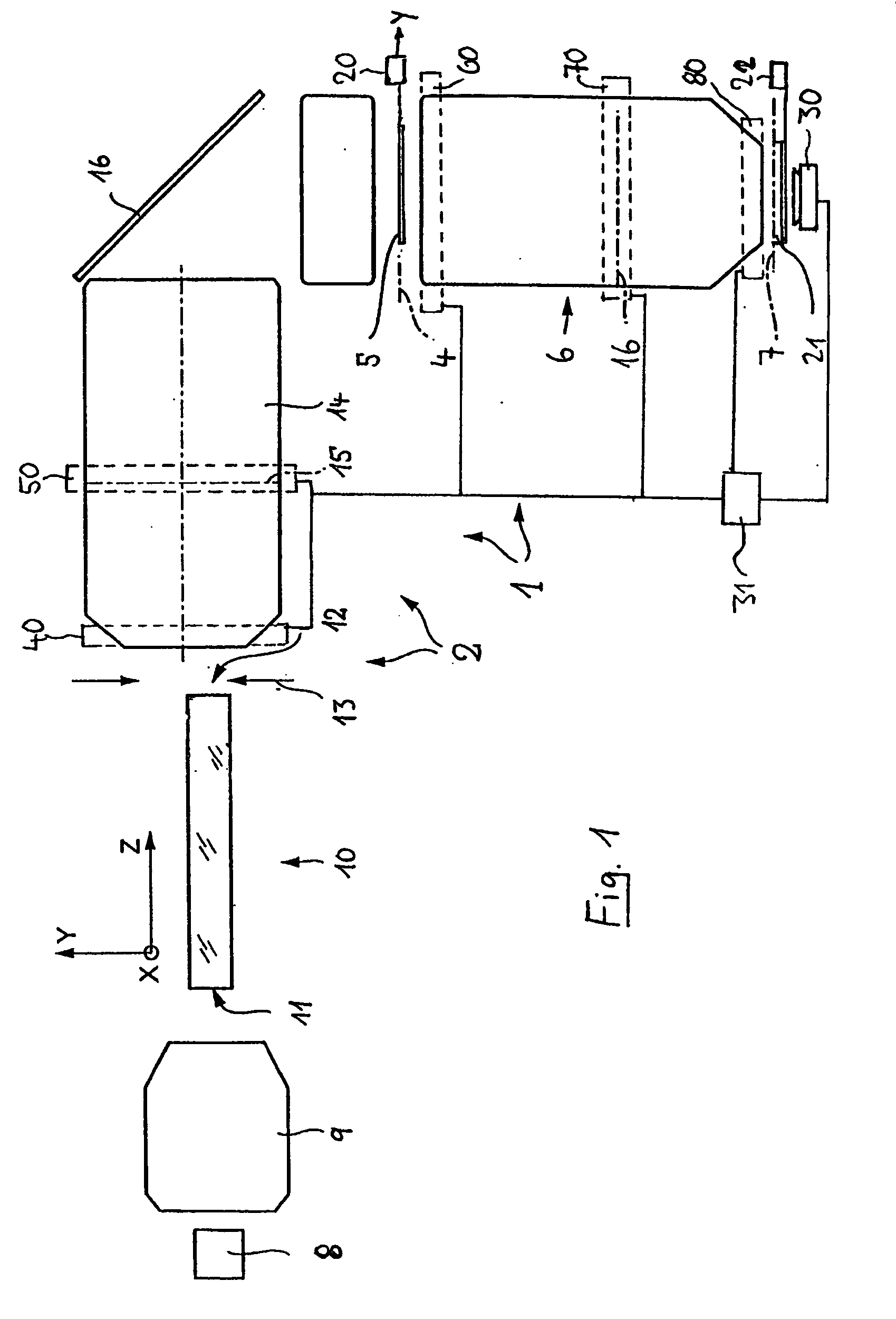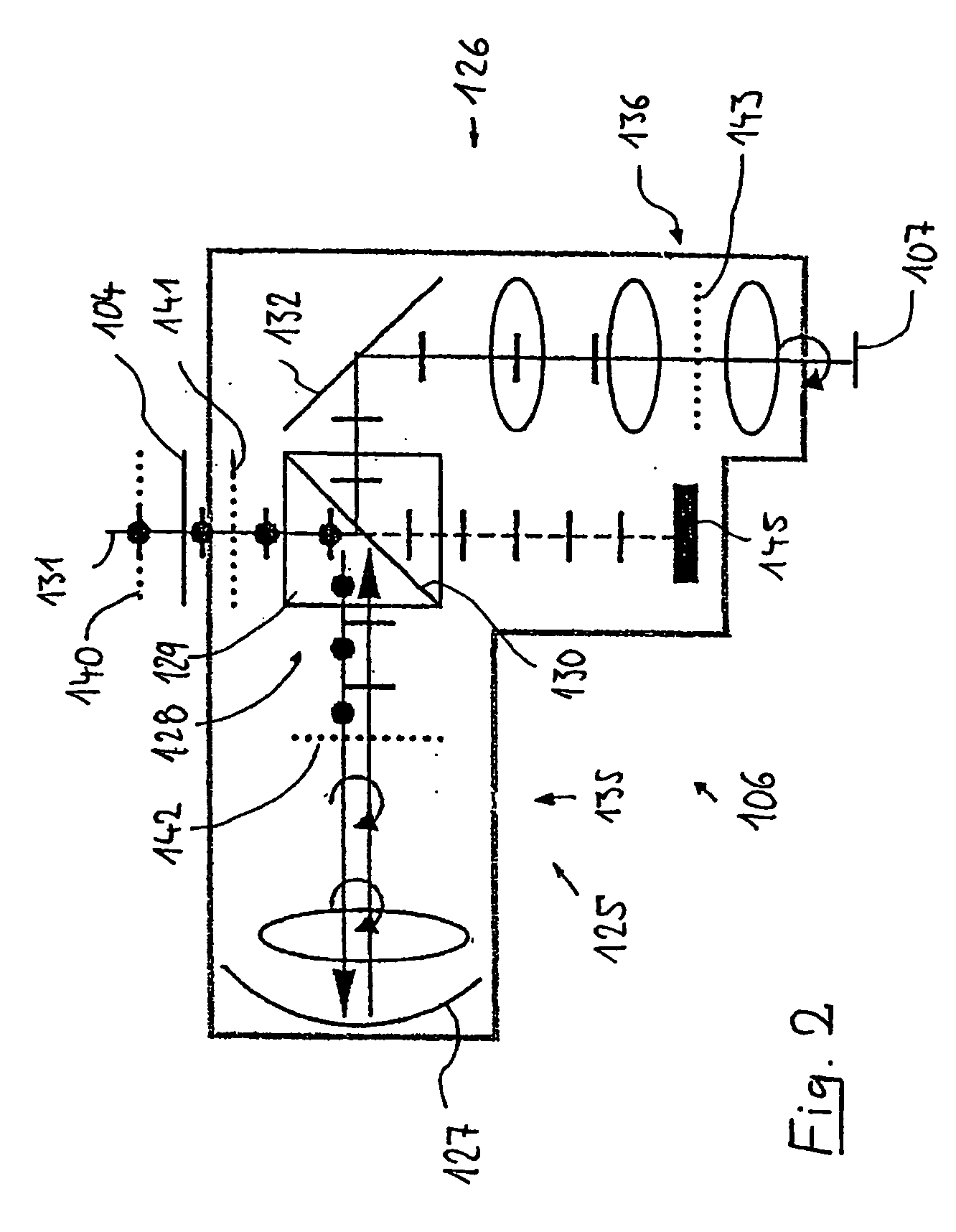Microlithographic exposure method as well as a projection exposure system for carrying out the method
a technology of exposure system and exposure method, which is applied in the direction of microlithography exposure apparatus, printers, instruments, etc., can solve the problems of polarization-changing effects of light passing through, stress birefringence is frequently observed to a disturbing extent, and the width of imaged structures is varied over their direction, so as to achieve the effect of reducing the number of times and cost advantages for adjustment and maintenan
- Summary
- Abstract
- Description
- Claims
- Application Information
AI Technical Summary
Benefits of technology
Problems solved by technology
Method used
Image
Examples
Embodiment Construction
[0059]FIG. 1 shows an example of a projection exposure system 1 for microlithographic production of integrated circuits and other finely structured components with resolutions down to fractions of 1 μm. The installation 1 comprises an illumination system 2 for illumination of a photomask 5 which is arranged in the outlet or image plane 4 of the illumination system, as well as a projection objective 6 which images the pattern of the photomask that is arranged in its object plane 4 onto the image plane 7 of the projection objective on a smaller scale. A semiconductor wafer which is coated with a light-sensitive layer is located, for example, on the image plane 7.
[0060] A laser 8 is used as the light source for the illumination system 2, for example an excimer laser used in the deep ultraviolet band (DUV) and with an operating wavelength of 248 nm, 193 nm or 157 nm. The light in the light beam that is emitted is largely linear-polarized. A downstream optical device 9 forms the light o...
PUM
| Property | Measurement | Unit |
|---|---|---|
| wavelengths | aaaaa | aaaaa |
| operating wavelengths | aaaaa | aaaaa |
| operating wavelengths | aaaaa | aaaaa |
Abstract
Description
Claims
Application Information
 Login to View More
Login to View More - R&D
- Intellectual Property
- Life Sciences
- Materials
- Tech Scout
- Unparalleled Data Quality
- Higher Quality Content
- 60% Fewer Hallucinations
Browse by: Latest US Patents, China's latest patents, Technical Efficacy Thesaurus, Application Domain, Technology Topic, Popular Technical Reports.
© 2025 PatSnap. All rights reserved.Legal|Privacy policy|Modern Slavery Act Transparency Statement|Sitemap|About US| Contact US: help@patsnap.com



